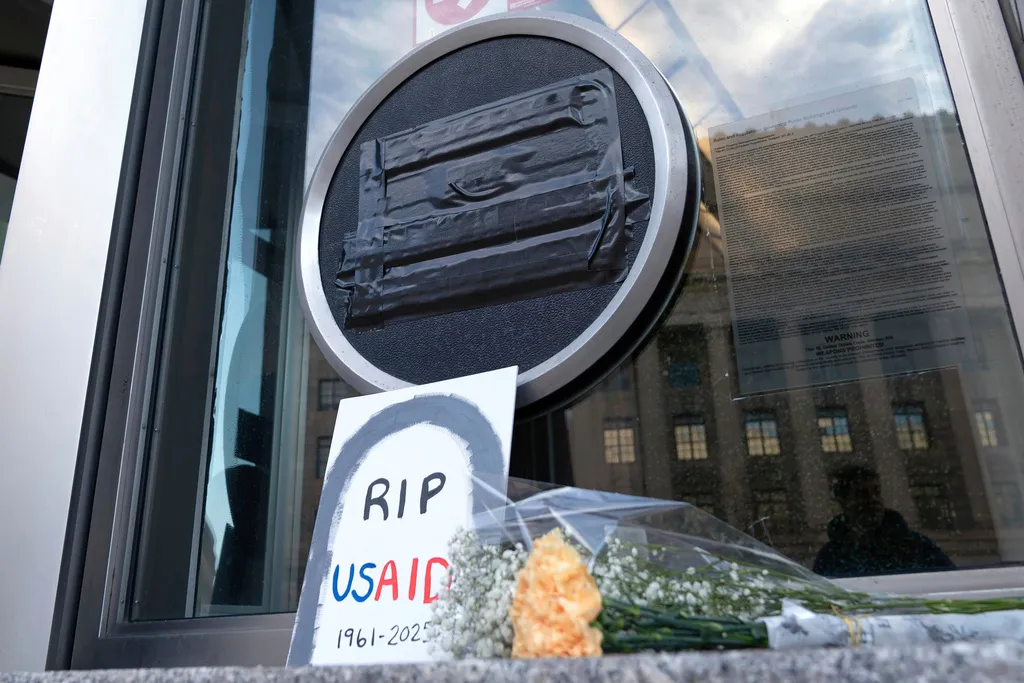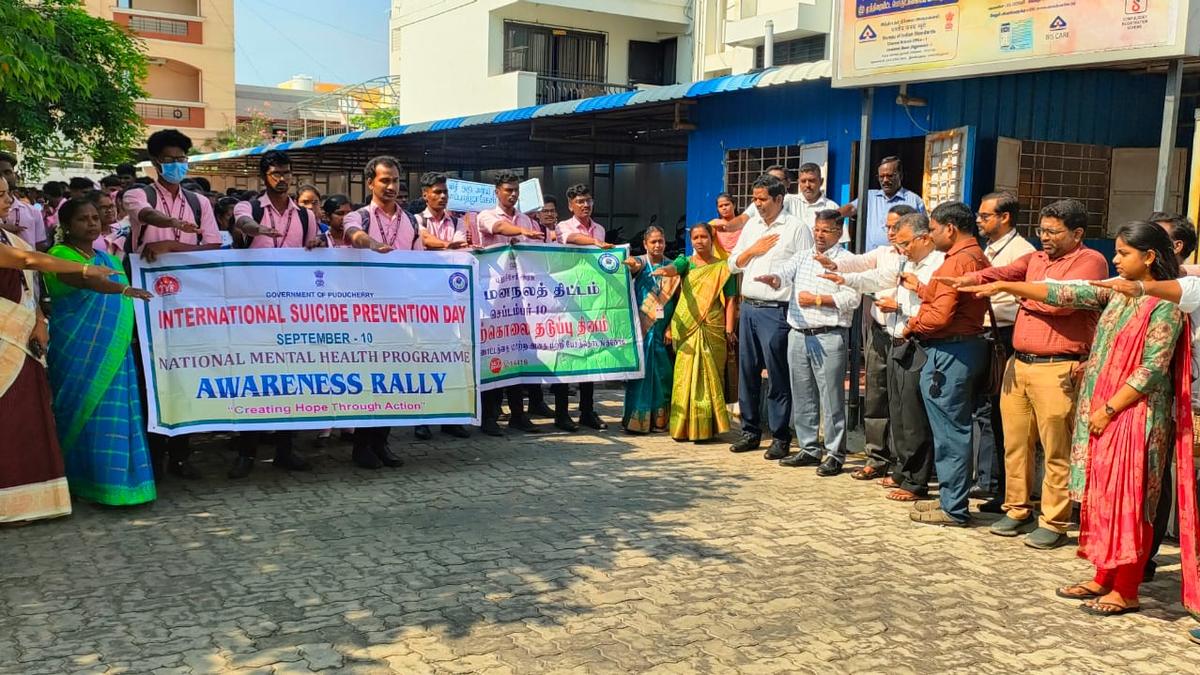
RWAMWANJA, Uganda
President Donald Trump claimed he was tackling “tremendous waste” and inefficiency as he dismantled America’s foreign aid system.
Yet what I find as I travel through remote villages is closer to the opposite: Trump has broken a lifesaving structure, squandering billions of taxpayer dollars while magnifying waste and inefficiency alike, costing dollars as well as lives.
Take as a microcosm the Rwamwanja health center in the southwestern corner of Uganda, where I’ve spent a week exploring the impact of the Trump aid cuts. Women often died in childbirth here, so in 2019 the United States helped build an operating theater in the area so that women could get C-sections to save their lives and their babies’ lives.
This worked. There were 120 C-sections a month, and last year there was not a single maternal death here, according to Medical Teams International, the nonprofit providing medical care in the area.
Today the operating theater remains in place, carefully tended and spotless. The equipment is ready for patients. Surgeons and nurses are standing by. The anesthetic machine is plugged in. But because of the cuts in U.S. funding, there was no longer money to hire a staff anesthetist — meaning that when I visited, there were no C-sections or other surgeries.
“All this is going to waste,” said Dr. Tom Oria of Medical Teams International. Now women in obstructed labor sometimes must be rushed to a hospital an hour away.
That’s another problem. The United States bought ambulances for the health center some years ago, but America no longer pays for drivers or fuel.
“We have ambulances, but if you have no driver, you can’t move,” lamented Dr. Janney Oyugi, a surgeon who manages the hospital.
So pregnancy has become more deadly here.
“Today we almost lost a mom,” Oria told me. The woman was in obstructed labor and needed a C-section. She found a ride to another hospital and survived, but delays led to a ruptured uterus and an abdominal hysterectomy; she will never have other children.
It’s true, of course, that the American aid operation could have used sensible reforms; too much money was spent on programs with unclear returns. But the Trump administration’s caricature of the U.S. Agency for International Development as liberal waste presided over by “radical lunatics” is grotesque. Until this year, U.S. assistance amounted to just 22 cents for every $100 of gross national income, while saving a life approximately once every 10 seconds. Can any other government agency claim so impressive a return?
Consider mpox, which the Africa Centers for Disease Control and Prevention calls a public health emergency. Mpox, formerly called monkeypox, is a debilitating disease caused by a contagious virus that has affected 29 African countries, with more than 2 million doses of the vaccine against mpox urgently needed. The United States had pledged 1 million doses of the vaccine — but 780,480 of those doses are now too close to expiration to ship, the Africa CDC told me, confirming reporting by Politico. So hundreds of thousands of people now won’t be protected.
The State Department also confirmed, after reporting by the Atlantic, that the administration let nearly 550 tons of emergency food aid expire and then incinerated it — a painful mismanagement of aid.
I obtained a State Department memo describing an even larger stockpile, more than 3,700 tons of vegetable oil in Djibouti, that was at risk because it will expire in January and February. Shipping and distribution take months, so that oil should have been allocated earlier. But, embarrassed by the destruction of the other food aid, this time the State Department hurriedly gave the vegetable oil to the World Food Program, and it appears it will all be distributed in time to hungry Ethiopians.
The Trump administration also eliminated data reporting and analysis that was meant to ensure that spending was effective. “In trying to cut waste, we’ve instead destroyed oversight, creating waste on a far greater scale,” Anjali Richards, who worked as a senior data analyst at USAID until this year, told me.
Staff members at USAID told me the aid system was in chaos all spring and layoffs of qualified people — coupled with the distrust that political appointees felt for career officials — magnified the dysfunction. Everything seemed paralyzed, the insiders said.
For example, USAID hired a ship to carry more than 50,000 tons of grain to Yemen, but after the ship left port the administration decided to cancel aid to Yemen. Officials didn’t know what to do with a ship at sea full of grain, and the shipowner was warning the U.S. would face charges of at least $25,000 for each day of delay. Finally, officials said at the last minute to drop off the cargo in Sudan, where the U.N. took custody of the grain.
Insiders say there has been some progress in overcoming the chaos. The State Department has decided to hand over stockpiles of food to U.N. agencies and to place some orders, and the gears of a slimmed-down operation are moving again. Political appointees still distrust career officers but apparently recognize the need to work with them to avert disaster and embarrassment. So some humanitarian programs in malaria, AIDS and food assistance from American farmers are likely to find their footing — yet aid will still be only a shadow of what it once was, and many hundreds of thousands of children are forecast to die as a result.
One fundamental challenge is the deep ideological suspicion of the Trump administration toward U.N. agencies — even the World Food Program, which won a Nobel Peace Prize, is led by Cindy McCain of the United States and has an unparalleled global logistical operation to deliver food. “We were instructed multiple times not to fund WFP or UNICEF,” said a former USAID official in the Trump administration.
Yes, the U.N. system is a bureaucratic labyrinth and is frustrating to deal with; it’s also indispensable. The U.N. is omnipresent and is almost unmatched in its capacity to move vast quantities of aid to troubled parts of the world. Already, Trump’s decision to cut funding for the U.N. Population Fund means less availability of contraception, probably thousands of additional maternal deaths and a setback in efforts against female genital mutilation. Bypassing the World Food Program and UNICEF will entail more waste, inefficiency and child deaths.
The talk about waste and inefficiency may sound vague, so what does it mean in reality? Meet Alice Manariyo, a woman from Burundi I spoke with in Uganda. She is Tutsi but married her love, a Hutu. When she was two months pregnant, a gang abducted her husband, who hasn’t been heard from since. She fled to Uganda and doted on her son, Gy Gael, who turned 8 years old in June.
Secretary of State Marco Rubio continues to claim, as he told ABC’s George Stephanopoulos last week, that “no one has died because the United States has cut aid.” But Gy Gael suffered an infection this summer and couldn’t get appropriate antibiotics because the aid cuts have left the area health center without medications. Gy Gael became septic. He died Aug. 17.
“I can say that my son died because of aid cuts,” Manariyo told me dully. “If doctors had support, my child would be alive.”
Nicholas Kristof is a columnist for the New York Times.



